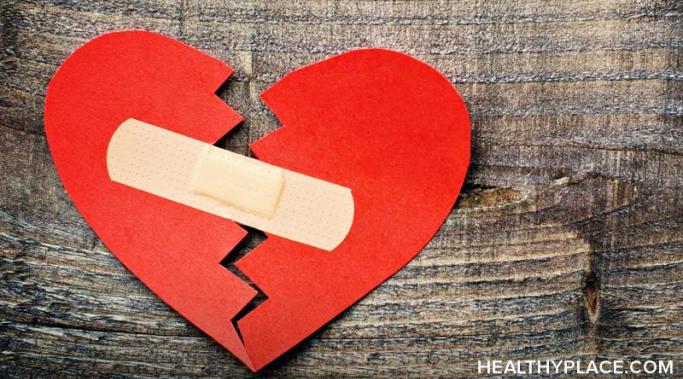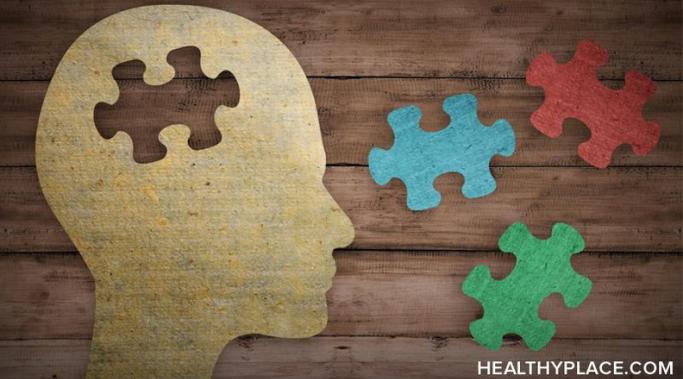Blogs
There are coping skills for breakups, but learning them took me a while. One of the things I hate most about the summer is that it seems to be my season of breakups. Every time it happened years ago, I felt like something was wrong with me. I lost hope in ever having a lasting relationship. My mind went to dark places for several months. This time, however, I have techniques to ease the healing process. Continue reading to learn about my list of breakup coping skills.
Sometimes, the chaos of life feels so insurmountable that taking advice from another human just won't do—the wisdom needed is beyond the scope of mere mortals. In times like these, a vaster source is necessary. If you're secular and starting to get antsy at the sound of this, don't worry. I'm not talking about your typical humanoid deity. I'm talking about the ocean.
Dating with an invisible illness has its pitfalls. When do you tell someone about your illness? When do you explain the impacts your illness has on your life? How do you try to make an invisible illness visible to the person you're dating? My own forays into the dating pool have been making me think about just these questions.
Gambling addiction can consume every aspect of your life, everything from financial ruin to strained relationships; you remain helpless, at the mercy of a ruthless addiction. As someone who has been through the motions of gambling addiction, I understand how easy it is to go from harmless wagers to a debilitating reliance on gambling to function. As a result, I hope to shed light on the dark side of gambling in hopes that other people can pull themselves out before it’s too late and to empower people to make informed decisions to avoid falling into its treacherous grasp. Gambling addiction prevention might work.
Medication lapses at work can be detrimental to people with mental health issues. I have experienced a myriad of problems that came from a lapse in medication. These problems have included withdrawal symptoms, a resurgence of symptoms, the increased risk of relapse, and the risk of self-medication. There are many reasons why a person may have a lapse in medication in the workplace, but one that has really affected my mental health is insurance refusing to cover my medication.
Can an abuser change? That is the question. One common characteristic many individuals share is the belief that people can change for the better. When verbal abuse occurs in relationships, the behavior may continue unless one or both individuals move to change the dynamic. This change can come from the abuser or the victim, forcing a shift in the relationship.
"Trust the process" has been my eating disorder (ED) recovery mantra for almost 15 years. The clinicians who ran my residential treatment program used to chant this phrase ad nauseam. Back then, it was a constant source of irritation. But now, I find myself returning to those three words more often than I ever bargained for. In fact, this recovery mantra feels just as relevant in my current season of life as it was at the starting line of ED recovery.
I consider antipsychotic medication the most critical piece of my treatment. However, no matter how well the drugs work, I'm still human and have other things going on. On my best days, when I have very few symptoms of schizophrenia, I am still in relationships with others. I still have memories. I have habits. I have patterns of communicating, traumatic events that I've experienced, and a connection to myself. For example, I'm living with the grief of my dad moving into a nursing home and the aftermath of a global pandemic. For me, antipsychotics and therapy work together.
In my final post for the "Coping with Depression" blog, I’d like to wish you all a sincere farewell and offer a few lessons I’ve learned over the last six months.
I've got this oddly specific fear of abandonment at night. It's bizarre, but when my partner dozes off before me, I feel like a lost child, abandoned at the mall. I'm aware it's not rational; my partner is right there, snug beside me, and I'm a grown adult who's tackled the mall solo countless times. But that lingering fear of desertion from my past creeps in as if it were determined to sabotage the present.










I'm sorry things are so hard. I know what that's like.
I can't tell you what to do, but I can tell you this: it took me a long time to find the best treatment for me -- and things still require tweaking. Moreover, it's unlikely that any one thing will work on its own for you. You likely need a combination of approaches like therapy and medication together. And remember, doing what you have always done will give you what you've always gotten. You can't change your brain on your own.
One thing I can say is, don't give up. Things can get better.
-- Natasha Tracy
I'm so sorry about how hard it is. I know what it's like to appear "fine" but be anything but. I also know how hard it is to ask for help.
I think when you're asking for support, the best thing to do is to think about what you want to say ahead of time and think, specifically, about how to explain what you're going through. You can then think about how to express yourself while not overly concerning the other person. (Keep in mind some concern is normal and unavoidable.)
For example, maybe you want to talk about being depressed. You might say something like, "I feel like everything is grey. Food tastes like sawdust. I feel like I'm never going to get better. I don't know what to do."
All those things are normal and okay. You might want to further express something like this, though, "I know my brain is lying to me about never getting better, but it feels very real."
The second part is important because it helps the other person put what you're saying into perspective.
Other people don't know what it's like to be in your brain, so try to explain it to them and explain how concerned they actually should be.
Finally, if you can't do the above, I understand. It's awful to have to take care of the other person while asking for help for yourself. That doesn't mean you still should ask, though. If they're concerned, then they're concerned, and that's okay.
-- Natasha Tracy
Thank you so much for reaching out to share this part of your story. From one twin to another, I am deeply sorry for the loss of your sister, and I can certainly understand the frustration, discomfort, and insecurities of feeling like your bodies were under constant scrutiny and comparison. I appreciate your vulnerability and willingness to share your insights and experience.
I now live a very depressed life, which is very isolating. I understand the feeling of not wanting to die, but also getting very worn out from living.
One day I want to seek help for myself, and the rest of the time I think it would be best to just soldier on alone.
I hate being such a disappointment to people, whether it's friends, family, or even the rare relationships I encounter.
I've tried medication in the past, I've tried counselling and support groups, I now think that nothing will help, especially not even my own ability to help myself.
If only you could just take whatever is wrong out of my head, as I really hate to think things are just going to get worse until life decides it's time for me to pass.
I appreciate your transparency and step by step ideas to survive as a single person.. Even though I suffer from Bipolar 1, I find that either end of the polar spectrum creates chaos in my life as well as friends and family. These are the more full blown manic times, where literally everyone who cares about me are dealing with hospitalization emergencies. While well , they assume everything is fine. Now is the deep depression where even leaving my house or getting out of bed are really hard. I am overwhelmed and my house is a mess. I do not communicate my depression to anyone but my therapist because I don’t want to make them worry. I’m worried myself because of the unpredictability of this disease.. I am too sad to cry and I’m practically having a panic attack thinking about going to work tomorrow. At any moment I could snap at one of my unlikable colleagues. Even though I need a paycheck, I’m also fully capable of quitting if anyone crosses me. The biggest frustration is that no one seems to understand. I appear normal on the outsides but inside, it can really suck. I’m going to listen to your podcasts and hopefully, you will cover more specifics on how to elicit support without causing panic…and who wants to be appointed this unpleasant job.